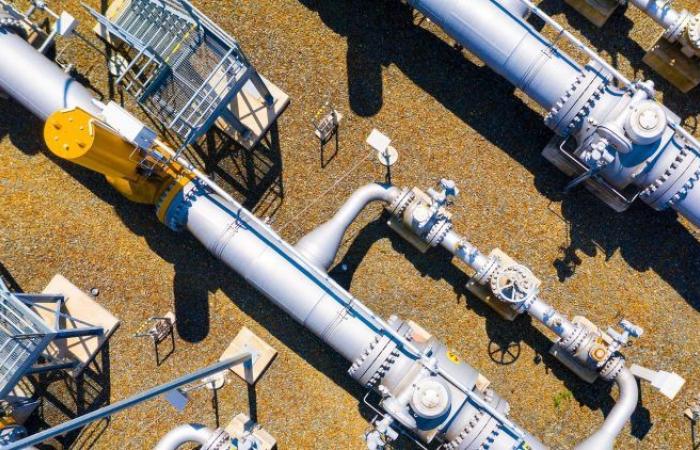The European Union must still resolve major problems to be fully ready to face a new gas crisis, warns the European Court of Auditors.
Europe has certainly adopted several urgent measures following the Russian-Ukrainian crisis, but the benefits of its action are not always obvious, estimates the EU’s external auditor in a report published on Monday.
The report’s authors draw attention to several new challenges that the EU must address to secure its long-term gas supply, such as increased dependence on liquefied natural gas (LNG) and the need to decarbonize part of its consumption gas.
The rapid abandonment of Russian gas imports, which accounted for 45% of all gas imported into the EU in 2021, has created a supply crisis, itself causing an affordability crisis financial. In August 2022, wholesale gas prices peaked at 339 euros per megawatt hour (compared to 51 euros twelve months earlier). According to figures from the Court of Auditors, subsidies for gas and electricity prices by Member States reached some 390 billion euros in 2022 alone.
”Given its dependence on foreign gas, the EU can never let its guard down on the security of its supply, and there is no guarantee of prices accessible to consumers in the event of a major shortage,” warns João Leão, member of the Court, responsible for the audit.
During the crisis, the EU managed to reduce its gas demand by 15%, but auditors could not determine whether this was due only to the measures taken or also to external factors (e.g. high gas prices and the mildness of winter).
Likewise, the obligation to fill gas storage facilities on a European scale was respected, the objective of 90% having even been exceeded. But, it is explained, this corresponds neither more nor less to the filling levels before the crisis. Furthermore, it is ”impossible” to assess the effectiveness of capping gas prices in the EU, because they have always remained significantly below since it was set.
Other measures include the launch of the AggregateEU platform, intended to serve as an alternative channel for gas purchases and sales, including group purchases. Here too, the Court’s auditors were unable to determine the added value compared to other existing platforms: In fact, the price differences between the 27 generated by the crisis had already diminished considerably before the implementation AggregateEU service.
Auditors conclude that the EU must consolidate its framework for gas affordability. They also warn that many Member States are still reluctant to sign bilateral solidarity agreements. Some of them would even consider interrupting supplies to a neighboring state in an emergency.
Finally, the auditors highlight insufficient progress in carbon capture, use and storage (CCUS), which risks posing a problem for long-term security of supply. Given the EU’s climate objectives (in particular that of achieving net zero emissions by 2050), the imperative of reducing carbon emissions from gas consumption is expected to play an increasingly important role. more important for the security of its supply.
To date, the four commercial CUSC projects operating in the EU together capture up to 1.5 million tonnes of CO2 per year. A drop in the ocean compared to the 450 million tonnes of CO2 to be captured by CUSC each year by 2050 to achieve the EU’s climate objectives, estimates the Court of Auditors.
With MAP






